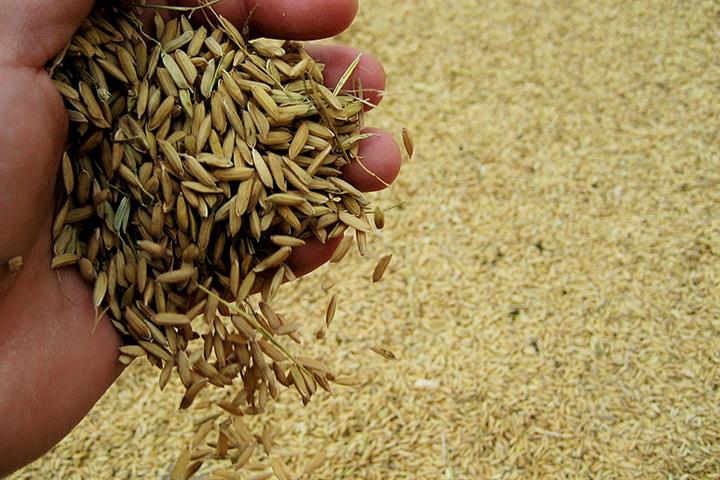 Chinese Farmers Bought More US Sorghum in May Amid Wheat, Corn Price Hikes
Chinese Farmers Bought More US Sorghum in May Amid Wheat, Corn Price Hikes (Yicai Global) June 22 -- China's imports of sorghum, an animal feed mostly coming from the United States, jumped in May amid declining corn and wheat purchases as grain prices fluctuated.
Imports of sorghum almost tripled in May from a year ago, according to customs data. Meanwhile, imports of certain types of rice, also a corn substitute, nearly doubled.
International corn and wheat prices have been rising over recent months, which has directly led to declines in volume and increases in the imports of substitutes such as sorghum and cassava this year, Gu Jian, researcher at Bric Agricultural Big Data Technology, told Yicai Global.
From January to May, wheat imports dropped 4 percent from the same period last year. The tally of corn slid 2.9 percent, and that of barley dived 28.4 percent.
Still, the overall demand has remained similar. In May, the total grain imports climbed 0.2 percent to 15.9 million tons from a year ago. In the first five months of this year, imports totaled 66.52 million tons, sliding 0.2 percent from a year earlier.
Farmers are dynamically adjusting to the price changes. Importing a lot of affordable sorghum can effectively reduce breeding companies' cost pressures as corn prices are not likely to drop in the short term, Gu said.
The additional imported rice substitutes corn too, according to Gu. China mainly imports broken rice so the increases in new rice imports are generally destined for animal feed, the researcher added.
Barley and sorghum are other important alternatives to corn while this time sorghum beat barley, said Zheng Wenhui, researcher at the Guangdong South China Grain Trading Center. The total imports of substitutes maintain a relatively stable level, Zheng added.
China’s largest source of sorghum is the US so trade is not restricted by the Russia-Ukraine conflict, according to Zhang Zhixian, deputy director at the Yida Research Institute of China Grain.
However, the situation has affected the barley trade. The Russia-Ukraine conflict has led to a noticeable drop in barley exports from the Black Sea region, which is also an important reason for the large decline in China’s barley imports this year, said Gu.
In the first five months, China imported nearly 130,000 tons of barley from Ukraine, much lower than the 570,000 tons a year ago, said Zhang at Yida. Moreover, the high cost has also limited such imports.
Editors: Tang Shihua, Emmi Laine, Xiao Yi